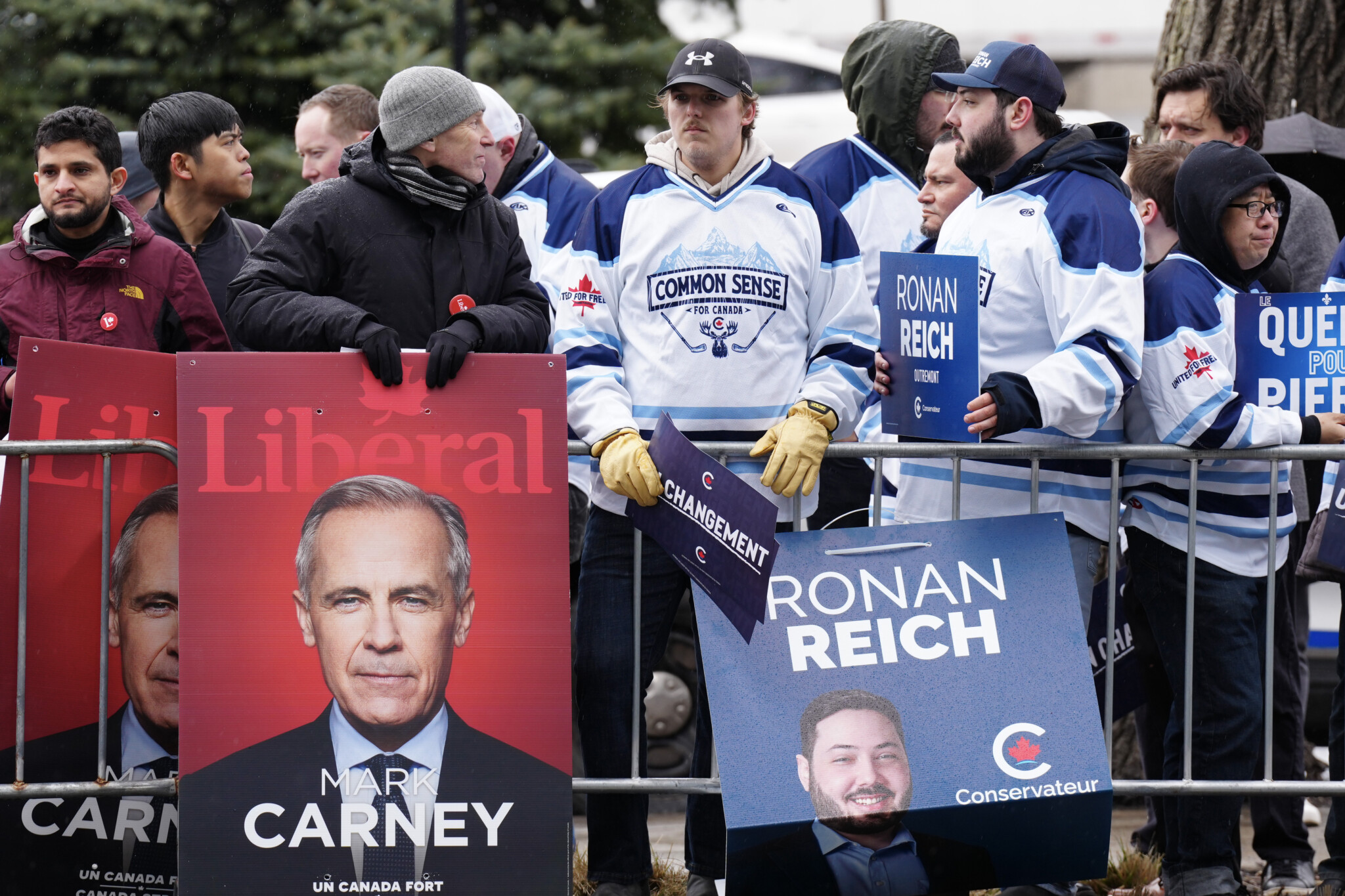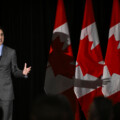As Canadians head to the polls today, polling aggregators have Mark Carney’s Liberals ahead of Pierre Poilievre’s Conservatives. But the two parties are close enough for the outcome to remain uncertain. If you haven’t voted already, the choice is now up to you.
(While many Canadians will be voting for other NDP, Greens, People’s Party, Bloc Québécois, or others, this column will focus on the two national parties from which governments are formed.)
There are good reasons to support each candidate, and good reasons not to. But whoever wins will face a country dangerously divided in a time of crisis.
The case for each candidate
The platforms of the two parties are remarkably similar. Both plan tax cuts, spending cuts, and deficits. Both commit to bringing defence spending up to 2 per cent of GDP. Both are offering tax breaks for new homeowners. Both want to create energy corridors to facilitate trade with Europe and with Pacific nations, while promoting internal free trade. Both would reduce immigration levels.
But a Poilievre administration would, overall, offer smaller government, lower taxes, and less spending than Carney’s. If you approve of limited government, you’re probably voting Conservative.
You should also support Poilievre’s party if you believe the Liberals must not be rewarded with a fourth term after having racked up enormous deficits, broken our immigration system, created a severe housing affordability problem, and generally messed things up. For you, Mark Carney is nothing more than a change of face, while Poilievre is a warrior for change.
And you should vote Tory if you believe that the interests and concerns of people in Western Canada have been neglected through a decade of Liberal rule, leaving the oil and gas sector, crucial to Canada’s economy, dangerously neglected.
A vote for the Conservatives is a sensible vote.
You should vote for Mark Carney if you believe navigating Canada through the tariffs and the annexationist threats of U.S. President Donald Trump must be the greatest, perhaps even the sole, priority of the federal government.
As a former central banker in Canada during the 2008-09 financial emergency and in England during Brexit, Carney has deep experience in crisis management and close ties to European allies, which could help Canada weather the Trump tariffs, diversify markets, and cooperate in collective security.
You may be worried about Poilievre’s abrasive personality and populist leanings. While you’re all for tax cuts and lower deficits, you don’t want to see the CBC defunded, and you worry about Trumpesque promises to cut funding to universities that are “too woke.” You worry as well about the Conservative tendency to focus on trans issues; what they call advocating for parental rights, you see as stigmatizing a vulnerable minority.
Even though Carney eliminated the consumer portion of the carbon tax, you should vote Liberal if global warming and environmental concerns are important to you, for they are clearly more important to Carney than they are to Poilievre.
A vote for the Liberals is a sensible vote.
Rough waves ahead
The next government, whatever its stripe, will face a country deeply divided both by region and generation.
The provincial Parti Québécois has a substantial lead in Quebec, and its leader, Paul St-Pierre Plamondon, is vowing to hold a third sovereignty referendum if elected. Yes, support for sovereignty is weak in Quebec right now, but a sovereignty referendum is always a dangerous thing. Going into the 1995 referendum, few expected the final vote to be as close as it was.
Former Reform leader Preston Manning went overboard when he warned that a Liberal victory could lead to a referendum on sovereignty in Alberta. But Laurentian Canada dangerously underestimates the anger in Saskatchewan and Alberta toward the “Indifferent Centre,” especially when it comes to investments in the critical oil-and-gas sector.
Polls also show that the Boomers and Gen X are far more concerned about the threat coming from the United States than younger voters. Older Canadians, more likely to vote Liberal, may put a maple leaf flag in their window as a gesture of patriotic defiance, but they are also motivated by the desire to preserve their retirement savings and the equity in their homes.
Younger voters, more likely to vote Conservative, have less to preserve and are more pessimistic. An Ipsos poll showed that four-in-ten voters under 35 would vote for annexation with the United States if the financial terms were attractive enough.
And outside our borders, the Western alliance is under threat from autocratic belligerence and American indifference. The world doesn’t need more Canada. But it does need Canada to step up more.
The prime minister of the next government must appreciate the fragility of Confederation and of Canada’s place in the world.
Whether that leader is Poilievre or Carney, he’ll have his work cut out for him.










